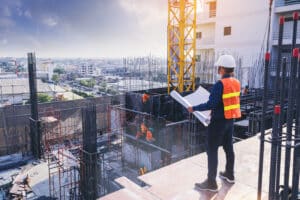As we have covered in past posts, there are numerous activities conducted by architects and engineers that qualify for valuable federal and state research and development (R&D) tax credits. The credit, which is designed to reimburse companies that develop new products, processes or inventions, offers a significant percentage back to the company for qualified research activities and qualified research expenses. These savings can offset wages and salaries paid for qualified activities. Yet, many architects don’t realize they can apply dollars from earned tax credits for “passion projects,” or side projects they conduct under the firm umbrella. Additionally, these projects may qualify for additional R&D tax credits when they take the project from inception to completion.

Examples: Passion Projects That Generate R&D Tax Credits
By nature, architects tend to be highly creative individuals. It is not unusual for an architect to have a passion project, which is something they pursue because it inspires or excites them. Think no further than the popularity of tiny house designs, which was the brainchild of Jay Shafer. Just think: he started with one design that was just 96 square feet. Next, he created tiny homes on wheels and eventually founded the Tumbleweed Tiny House Company. The tiny house concept has taken off and now includes AIA-approved houses for disabled individuals.
Other examples include:
- An architect designed a net zero house, which means it does not rely on electricity or gas.
- A house was designed to use rain that is filtered into an underground tank, so there is plentiful water.
These are all examples of projects that can qualify for R&D tax credits, which can be used to invest into taking the concept to the next step, as Shafer did with his tiny house concept. These ideas are making a huge impact throughout the world, especially when you think of tiny houses for the homeless and disadvantaged.
Don’t confuse passion projects with side hobbies, which do not qualify for R&D tax credits. Passion projects are conducted within the architectural business. The great thing about R&D tax credits is that they can be used to offset the wages of those individuals involved in these creative projects. Then, the activities involved in testing the concept can earn additional tax credits to be invested in carrying the project to fruition.
R&D Tax Credit Study
Claiming R&D tax credits calls for a fair amount of documentation required by the IRS. That’s why it’s important to seek professional help from a consultant with a strong expertise in helping architects successfully claim these valuable tax credits. The experts at Engineered Tax Services dig much deeper into the fundamentals of your business activities – including passion projects – incorporating operations, engineering, financial and tax expertise that results in more credits. There is a direct correlation between the amount of your defensible credit and the expertise of the advisor performing the tax credit study.
Interested in learning more about R&D tax credits for passion projects or other activities that architects conduct on a regular basis?
The R&D tax experts at Engineered Tax Services have helped companies of all sizes across the U.S. identify and qualify these expenditures and receive the tax benefits they have been missing. Our process begins with an R&D Tax Credit Qualification Analysis to make sure your company qualifies for the R&D tax credit.
To learn more about R&D tax credits for architects, please complete the form on this page. For immediate questions about tax deductions for architects, call Engineered Tax Services at (800) 236-6519 or check out our R&D tax credit page for more information.



